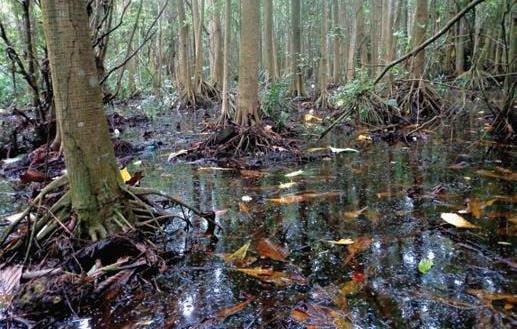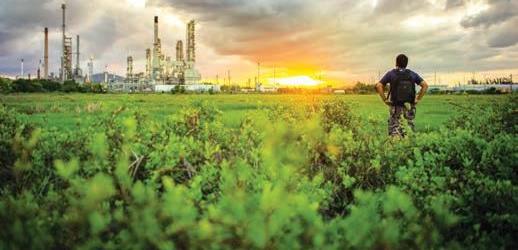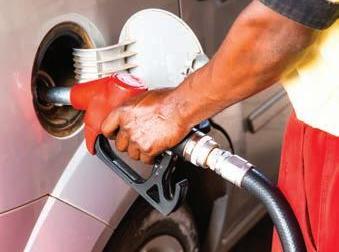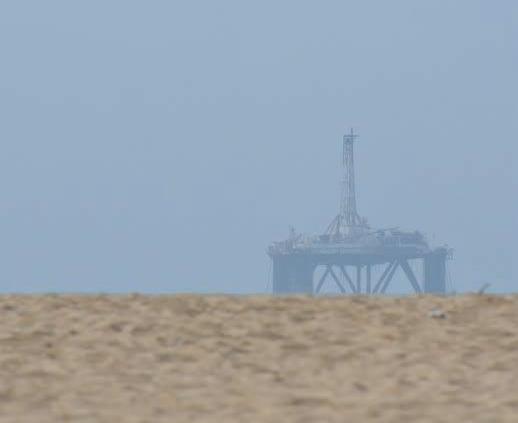
13 minute read
Calendar of oil and gas events
Executives Calendar 2020
JULY
www.upstreamawards.com/virtual-summit-2020
SEPTEMBER
6-9 North Africa Petroleum Exhibition Oran, Algeria www.napec-dz.com
OCTOBER
7-8 Upstream West Africa Summit Banjul, Gambia www.upstreamwestafrica.com
14-15 Angola Oil & Gas Luanda
www.africaoilandpower.com 20-22 Africa Energy Forum Amsterdam
www.africa-energy-forum.com
20-23 Africa E&P Summit Online
www.africaepsummit.com
28-29 Mozambique Gas Summit Maputo www.mozambique-gas-summit.com/
NOVEMBER
2-6 Africa Oil Week Cape Town www.africa-oilweek.com
9-12 ADIPEC Abu Dhabi
www.adipec.com
Readers should verify dates and location with sponsoring organisations, as this information is sometimes subject to change.
Virtual summit aims to share big industry ideas safely
THE OIL & GAS Leadership & Success Virtual Summit, which will be held online from 6-10 July, 2020, is being designed as a powerful response to the challenges facing the oil and gas industry on a global scale.
By using the latest in virtual meeting technlogy, the carbon footprint of the event is minimised, along with significant travel cost savings. This means more people from companies, organisations and government agencies will be able to take part, particularly as workforces the world over have become adept at using the latest online technology to hold meetings and events, and communicate internally while running operations in a way that helps curb the spread of COVID-19.
The event will feature panel discussions and presentations from leading oil and gas business experts, industry thought leaders,
Image Credit: Adobe Stock
Executives will be able to log in from wherever they are in the world.
major stakeholders, strategic thinkers, and operational leaders. Delegates will have access to five days worth of content that will address a wide range of concerns arising from the oil industry crisis, which have dominated headlines this year, such as the COVID-19 pandemic and historically low oil prices.
Presentations will be from senior executive speakers covering the hot topics with the objective to help the industry navigate the current problems being faced within the industry so that all stakeholders will be in a stronger position and have a better understanding of how to move forward as the world seeks to fully open for business again.
Speakers include: Elizabeth Rogo, founder and CEO, TSAVO Oilfield Services; Brian Muriuki, MD and country chair, Shell, Ghana; Jasper Peijs, VP, Africa exploration, BP; and Dr. Carole Nakhle, CEO, Crystol Energy.
The summit is designed to take delegates on a step-by-step journey throughout the oil and gas value chain on how to deal with the current crisis, adapting to a new world order and succeeding in a changed business environment. A Networking Platform, Exhibition Gallery and Energy Resource Centre will be accessible to participants.
For more information, go to www.upstreamawards.com/virtual -summit-2020

Sparrows Group moves to purpose-built facility in Angola to support African growth
ENGINEERING AND MAINTENANCE specialist Sparrows Group has re-located to a new purpose-built facility in Luanda, Angola to support its growing operations in Africa. The move provides the company with a new workshop, storage yard, training facilities and office to deliver its ISO-certified services incountry. This includes turnkey engineering, equipment maintenance and training services.
Located in the Vila Flor area, at approximately 2,000 sq m in size, the new complex enables Sparrows to provide customers in the region with a fast turnaround and assurance that work is carried out by experienced specialists to the right international standards. Equipped with the latest digital technology, the new facility gives Sparrows the capability to deliver their full suite of training courses including mobile crane, crane simulator, forklift and rigging training. A new equipment rental fleet situated at the premises includes rigging lofts, hydraulic power units, flushing rigs, and general tooling.
Stewart Mitchell, CEO of Sparrows, said, “Our team in Africa has been working extremely hard to get this new facility up and running and we look
Image Credit: Sparrows Group

The move to a new facility is positive news for Sparrows’ African operations.
forward to working with our customers to deliver the quality and efficiency they rightly demand in the region.”
Nigeria opens bid round for marginal fields, including land, swamp and shallow water
THE NIGERIAN GOVERNMENT has announced a 2020 oil licensing round as it opens up 57 marginal oil fields to potential investors.
The fields, located on land, swamp and shallow offshore terrains, are open to indigenous companies and investors with substantial Nigerian shareholding interested in participating in the exploration and production business in Nigeria.
However, companies whose

Image Credit: dotun55/Flickr promoters are either indebted to the government or currently holding oil assets are not prequalified to participate in the bid.
Bidders are expected to demonstrate capacity for Nigerian content development, particularly in the areas of training and growth of indigenous capability and manpower, as well as plasn for local input in the provision of materials and services to the industry.
“The overall process is not expected to take longer than six months, from the date of announcement and commencement to signing of farm-out agreement with the leaseholders,” according to the Nigerian Directorate of Petroleum guidelines.
Frontier lines up a series of online oil and gas events
TO MEET THE constant demand for information while avoiding non-essential travel Frontier has lined up a series of web-based events aimed at the African oil and gas industry.
Forthcoming events include: ‘Africa Exploration in Focus: MSGBC Basin’, which will be held on 18 June; ‘Stepping Up: Can Oil Companies be the Champions of Net Zero?’, which will be held on 25 June; and ‘Africa Exploration in Focus: Somalia’, which will be held on 2 July. Earlier events are now available online to registered participants as an on-demand service.
The events which have already been held cover topics such as Liberia’s Harper Basin licensing round; oil market uncertainty in the age of COVID-19; the impact of global LNG expansion; Namibia’s oil and gas future; South Africa’s oil and gas future (see report on page 12); and funding challenges for the oil and gas industry.
The events have attracted a range of speakers from across the African industry, including: Lindiwe Mekwe, general manager: Regulation Division, Petroleum Agency SA; Adewale Fayem, managing director, Total E&P South Africa; Maggy Shino, Petroleum Commissioner, Ministry of Mines & Energy, Namibia; Gil Holzman, president and CEO, Eco Atlantic Oil & Gas; and Minister Abdirashid Mohamed Ahmed, Minister of Petroleum and Mineral Resources, Somalia.
To register for future events and access past events, log on to www.frontierenergy.network/front ier-live

TSAVO Oilfield Services supports Equal by 30 campaign to boost women in oil and gas
TSAVO OILFIELD SERVICES joins seven major partners across the African continent as a signatory of the Equal by 30 campaign. Elizabeth Rogo, the founder and CEO of TSAVO Oilfield Services, commented, “It fills me with great joy to join and support the Equal by 30 campaign. I know too well just how vital a role women can play in the energy sector when they seize opportunities and create them, as I have been able to do. I want more women to become involved and to show the next generation that the sky is the limit.”
“As we continue to push for gender diversity and women empowerment, we value the participation of the men in the energy sector who walk with us and support this initiative, including at TSAVO. The
Image Credit: Adobe Stock

inclusion of women in all aspects of the energy sector is at the core of who we are and what we represent,” Rogo added.
Practical steps which the company is taking to attract and retain talented women include: training for all employees to create workplaces free of harassment, violence and bullying; creating opportunities to encourage girls and women to take up STEM subjects and pursue careers in the energy industry; and a target of approximately 50 per cent female representation across the company by 2030.
Sustainability grows as a priority for oil and gas companies worldwide, report finds
OIL AND GAS companies are facing increasing scrutiny for their carbon intensive operations, but this is leading to stronger commitments in regard to sustainability, according to a report by GlobalData.
With the passing of the 2015 UN Climate Change Framework, the demand for the oil and gas industry to curb its carbon
In response to global pressure, su stainability is becoming a higher priority. TSAVO is aiming for equal representation for women by 2030. emissions has increased. Companies that implement concrete measures to reduce their environmental impact are best placed to succeed in the coming years, says the report, ‘Sustainability in Oil & Gas’.
It reflects that the environmental threat of oil and gas industry is widely recognised and various governments have

Image Credit: Adobe Stock initiated preventive measures to mitigate it. Subsequently, many oil and gas companies are taking steps to curb the environmental impact, primarily due to regulatory and shareholder obligations. However, when it comes to social and governance factors, there appears to be a differentiation in the way companies handle these issues.
“Oil majors and other multinationals have adopted best practices in ensuring employee health and safety. However, the same is not true in case of the national oil companies. Many of these companies also lag on the corporate governance front as their operations are prone to corruption and crony capitalism,” a spokesperson for GlobalData commented.
Nigeria works to mitigate oil price slump and virus
IN THE WAKE of the oil price slump coinciding with the economic impact of COVID-19, action has been taken in Nigeria to mitigate the impact on the oildependent economy.
The Board of Directors of the African Development Bank (AfDB) has approved a US$288.5 million loan to help the country tackle the pandemic and mitigate its impact on people and businesses. This loan is the bank’s initial response to help mitigate the slump in oil prices.
Prior to the outbreak, Nigeria’s economy was projected to grow by 2.9 per cent of GDP in 2020 and further expand by 3.3 per cent in 2021. However, with the advent of the pandemic and the slump in crude prices, the economy is expected to shrink by between 4.4 per cent under a conservative baseline scenario, and 7.2 per cent should the pandemic persist to end-2020.
The pandemic could be the catalyst for further economic diversification away from oil.
Ebrima Faal, senior director of AfDB for Nigeria said that beyond the country’s immediate economic recovery needs, the bank and other development partners will dialogue with the government on proposals for medium-term structural reforms to diversify and boost domestic revenues away from the oil sector.
AfDB has instituted strong fiduciary measures to monitor the use of COVID-19 funds, and will keep the channels of communication open, particularly with the Office of the Auditor General in Nigeria, to ensure adherence to the transparency and accountability of the funds, Faal said.

Aker Energy Ghana looks to the future with Pecan field
AKER ENERGY GHANA has reaffirmed its commitment to finding a solution to commence a phased development of the Pecan field offshore Ghana.
“In a time when most other E&P companies are putting development projects on the shelf due to the COVID-19 situation and historic low oil prices, Aker Energy and our partners, Lukoil, Fueltrade and GNPC, working closely with the government of Ghana, are actively pursuing a development concept where we can commence phase one of a phased development of the Pecan field,” said Håvard Garseth, CEO of Aker Energy. “Although we have an altered timeline, we are on our way to finding a development concept with a break-even price that is sustainable and resilient also in a low oil price environment.”
In March, Aker Energy announced that FID for the Pecan field development project was on hold. While no new date has been set for FID, the company is executing conceptual studies to assess feasibility.
“Getting projects like the Pecan field in operation is key toward our mission of making Ghana a major producer in West Africa and Africa as a whole,” said Dr Mohammed Amin Adam, Deputy Minister of Energy.
Nigerian petroleum ministry intervenes on petrol prices

TIMIPRE SYLVA, JUNIOR Minister, Petroleum Resources has said the Nigerian government will continue to “interfere” in determining the pump price of petroleum prices “to protect the generality of the public from undue exploitation Petrol prices remain under state control. and prevent inordinate would “provide through the profiteering by oil marketers”. operation of the Petroleum
Mr Sylva stressed that the role Products Pricing Regulatory, of government in a deregulated PPPRA, which would use its economy was to provide a shield price modulation mechanism to for the consumers and that such a engender a market-driven price shield the Nigerian government regime.”


South Africa's Upstream Petroleum Resources Bill in focus at Frontier Energy webinar
PROGRESS ON THE South African Upstream Petroleum Resources Bill was discussed by a webinar panel on South Africa’s oil and gas future, which included the new CEO of the South African Oil & Gas Alliance, Total E&P South Africa, the independent view from Impact Oil & Gas and Africa Energy and the Petroleum Agency SA represented by Lindiwe Mekwe, general manager: Regulation Division and former acting CEO.
The panellists urged the South African government to prioritise passage of the bill, which will be put before Parliament in coming months. Attractive fiscal terms and state investment in energy

infrastructure are the main focuses of the bill. Lindiwe Mekwe, general manager: regulation division, South Africa is optimistic about new horizons for exploration. Petroleum Agency SA gave an overview of oil and gas exploration and highlighted the importance of consultation between government and industry. She anticipates the bill will become law by 2021.
Adewale Fayemi, managing director, Total E&P South Africa talked about the success at Brulpadda, the follow on field development and other prospects that Total are exploring in the region. Meanwhile, Impact’s Exploration Image Credit: Adobe Stock Director, Philip Birch stressed the importance of the Venus well attractiveness versus other more in Namibia,which Total will drill established hydrocarbon with its partners this year. opportunities such as Angola as Jan Maier, vice president - investors look for exploration exploration, Africa Energy said opportunities in the southern the company was hopeful for the part of the continent. Gazania-1 well, which they are Adrian Strydom, CEO, South working on in partnership with African Oil & Gas Alliance said Azinam Limited and Panoro that South Africa is ready to grow Energy subject to approval by the the upstream sector and South African government. He emphasised the world class skills, said they are expected to spud by research and opportunities the the end of 2020. He spoke of the country had to offer, in return for importance of South Africa’s jobs and investment.

Egyptian oil asset “exceeds expections”
BRIAN LARKIN, CEO of United Oil & Gas (UOG), said the result of the El Salmiyah-5 oil well on the Abu Sennan concession in Egypt has significantly exceeded the company’s pre-drill expectations. With a headline figure of c. 8,700 boepd on test from the primary target in Kharita, the results build on the success of the last 12 months which has seen UOG’s share of production increase significantly.
The well was targeting previously undrained reservoirs of the El Salmiyah Field, focusing on the Kharita Formation, and secondary objectives in the Abu Roash C and Abu Roash E. After logging, testing, and completion, the rig was released on 21 May.
The net pay was found at all of the targeted intervals, totalling more than 120m for the well and significantly exceeding pre-drill expectations. The main target interval of Kharita was found to be approximately 16m shallow to prognosis, indicating a larger than expected undrained area updip of the existing wells in the field










